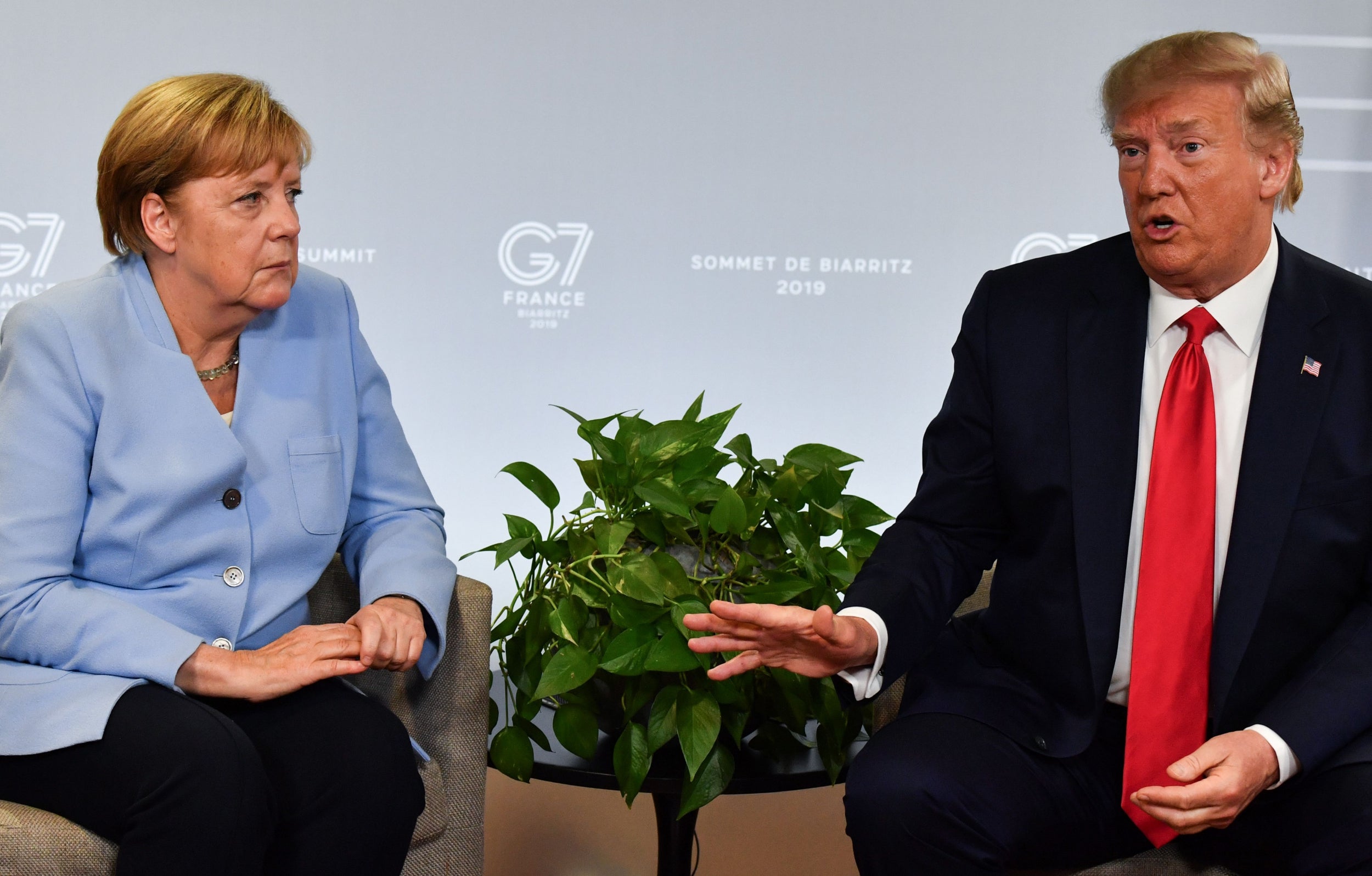It’s tempting to think Europe and the US are growing apart – but there’s more that binds us than politics
One explanation for our continued obsession with all things American is the all-pervading influence of the country’s popular culture

It’s a turbulent time for transatlantic ties. With Donald Trump pulling out of one international treaty after another, and French president Emmanuel Macron declaring the “braindeath” of Nato last year, it would be tempting to think that the honeymoon of the West is over and permanent divorce is imminent.
But there is more that binds Europe to America than politics. The unprecedented scale of Black Lives Matter protests across European capitals last month shows that when it comes to protest culture, Europe and the US are drawing closer to each other, not drifting further apart.
In 2016, 1,500 people marched through Paris to protest the murder of the 24-year-old Malian-French man Adama Traoré. By contrast, the footage of George Floyd’s asphyxiation brought 20,000 protestors to the French capital in June.
European activists still take most of their cues from across the Atlantic. In The Netherlands, the St Nicholas holiday celebration recently came under fire from American progressives for its racist roots (these days it’s hard to justify parading a bearded white man on a horse accompanied by blackface servants) sparking the Black Pete protest movement and forcing a much-needed debate about the country’s colonial past into the mainstream.
Similarly, the #MeToo movement may have started in Harvey Weinstein’s Hollywood, but soon took on a life of its own in France in 2018, when the powerful #BalanceTonPorc (“denounce your pig”) campaign forced the libertine French to confront their own demons.
Perhaps this should come as no surprise, given that since Donald Trump was elected in 2016 Europeans are more interested in American politics than ever. A 2017 Pew poll found that in northern European countries like the Netherlands and Germany, up to 75 per cent of the population says they closely follow news about the US.
When I was reporting on the 2019 European elections in May for my magazine, I was perplexed to see so many of my friends obsessing over Andrew Yang and AOC, while right under their noses demagogues like Farage and Salvini were getting up to a third of the votes in the European Parliament, and authoritarian leaders in Hungary and Poland were – and still are – locking up journalists and challenging minorities.
Even when news about political developments in Poland or Italy does pierce the Anglo-American echo chamber and reach the rest of us Europeans, it tends to leave us indifferent; the stakes simply seem higher across the Atlantic.
Another explanation for our obsession with all things US is the iron grip of American popular culture. In 2007, 77 per cent of all fictional television programmes in Europe were American. And in 2017, seven out of the 10 most watched movies in French cinemas were US productions.
Beyond these specific examples, it’s hard to ignore that most of my generation’s common interests – from internet memes, to the music and TV shows we stream, to the way the apps we use are designed – are influenced by American brands.
This shared social imaginary is the reason American culture will continue to shape debates in Europe. As “woke” groups increasingly find each other in online spaces, they will create a shared language and identify ever more common struggles.
So the next time you hear talk of the death of the transatlantic relationship after news of US tariffs on European export products, pause to consider the cultural connections between the two continents. These are likely to grow stronger in the years to come, not wither away.
Here’s the paradox: just when Europe is forced to reimagine its place in a world without America’s unconditional geopolitical support, our cultural and social realities have never been more intertwined.
Can Europe forge its own identity, separate from the US? As someone who spends most of their workday trying to make sense of where the continent is headed, it seems to me that Europe remains as obsessed with America as ever.
Join our commenting forum
Join thought-provoking conversations, follow other Independent readers and see their replies
Comments